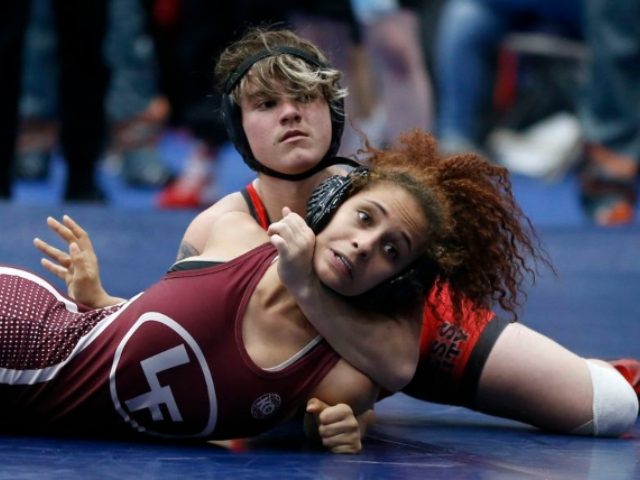As Congress begins debating the Equality Act, the Heritage Foundation warns that if the bill becomes law it will prove the death knell for women’s sports.
The House is voting on the Equality Act (H.R. 5) this week which, in the words of Duke Professor Doriane Lambelet Coleman, “will be the end of girl’s and women’s only sports,” Heritage reported.
Title IX required schools to establish separate women’s sports teams for federal funding, but the Equality Act will seriously undermine that, Heritage added.
“The Equality Act would redefine sex in the 1964 Civil Rights Act, basing it not on biology, but on self-perceived gender identity,” Emilie Kao wrote.
Kao went on to note that women’s sports has already been undermined by the transgender movement.
Female athletes nationwide are already losing to males who argue that sex-segregated sports is unfair discrimination. But athletes who identify as the opposite sex aren’t excluded from competing against their physical equals. Instead, they are seeking to compete in categories created to provide an equal playing field for all athletes.
Some female athletes have spoken out about the transgender movement as it affects women’s sports.
World-record runner Paula Radcliffe said that opening women’s sports to men who “self-identify” as women necessarily cuts women out “due to the added numbers achieving” women’s records.
“The Equality Act isn’t about including those who were unfairly excluded from sports. It’s about meeting the demands of a powerful political group for unfair advantage. This politicizes sports, and there is no clear limit to where that will end,” Kao writes.
If one athlete can identify as the opposite sex, then why can’t another identify as a different age? The unfairness of allowing someone born with male physiology to compete against women should be as obvious as that of allowing adults to compete against children.
Fairness requires that rules be based on physical realities. The Civil Rights Act addressed the illegitimate exclusion from educational opportunities on the basis of an immutable characteristic race. But in sports, sex and age are two legitimate categories upon which rules should be based. Sex differences determine performance.
To wrap up her piece, Kao noted that the level of testosterone that naturally occurs in women “(2.4 nanomoles per liter (npl)) does not even reach the floor for men’s testosterone levels (10 npl).”
“We should treat people suffering gender dysphoria with compassion and respect. But that doesn’t mean legislators should pass laws that put female athletes at such a disadvantage,” she said.
It comes down to a choice between politics and sports. Supporters of the Equality Act should listen to the female high school runners in Connecticut who describe losing to transgender athletes as “heartbreaking.”
Will Congress turn the clock back by denying these girls the opportunity to compete against their own sex? Or can we keep politics out of sports so both men and women can play to win?
There are a few voices in women’s sports finally speaking out about transgenderism in sports.
Tennis great Martina Navratilova, for instance, has criticized the idea.
“Letting men compete as women simply if they change their name and take hormones is unfair — no matter how those athletes may throw their weight around,” Navratilova said of transgender players’ efforts to be recognized under their “chosen” gender.
British Olympic swimmer Sharron Davies also slammed the concept of transgender athletes.
“I just don’t understand how anyone can say this is a level & fair playing field,” Davies tweeted. “1000% increase in trans women taking part in sport recently. It’s a serious topic that has to be honestly dealt with for safety as much as integrity #fairplay.”
Follow Warner Todd Huston on Twitter @warnerthuston.

COMMENTS
Please let us know if you're having issues with commenting.